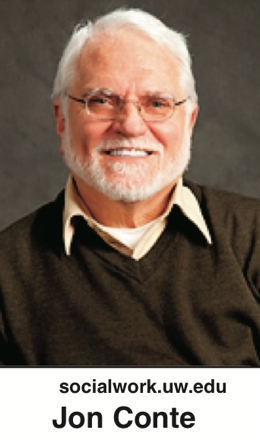Rascals case in brief
In the beginning, in 1989, more than 90 children at the Little Rascals Day Care Center in Edenton, North Carolina, accused a total of 20 adults with 429 instances of sexual abuse over a three-year period. It may have all begun with one parent’s complaint about punishment given her child.
Among the alleged perpetrators: the sheriff and mayor. But prosecutors would charge only Robin Byrum, Darlene Harris, Elizabeth “Betsy” Kelly, Robert “Bob” Kelly, Willard Scott Privott, Shelley Stone and Dawn Wilson – the Edenton 7.
Along with sodomy and beatings, allegations included a baby killed with a handgun, a child being hung upside down from a tree and being set on fire and countless other fantastic incidents involving spaceships, hot air balloons, pirate ships and trained sharks.
By the time prosecutors dropped the last charges in 1997, Little Rascals had become North Carolina’s longest and most costly criminal trial. Prosecutors kept defendants jailed in hopes at least one would turn against their supposed co-conspirators. Remarkably, none did. Another shameful record: Five defendants had to wait longer to face their accusers in court than anyone else in North Carolina history.
Between 1991 and 1997, Ofra Bikel produced three extraordinary episodes on the Little Rascals case for the PBS series “Frontline.” Although “Innocence Lost” did not deter prosecutors, it exposed their tactics and fostered nationwide skepticism and dismay.
With each passing year, the absurdity of the Little Rascals charges has become more obvious. But no admission of error has ever come from prosecutors, police, interviewers or parents. This site is devoted to the issues raised by this case.
On Facebook
Click for earlier Facebook posts archived on this site
Click to go to
Today’s random selection from the Little Rascals Day Care archives….
Click for earlier Facebook posts archived on this site
Click to go to
Today’s random selection from the Little Rascals Day Care archives….
What? A journal willing to retract?
 March 6, 2014
March 6, 2014
First of three posts
Psychiatric Times isn’t the only professional journal to avoid reexamining the “satanic ritual abuse” era.
Other examples include Nursing Research, Child Abuse & Neglect and Relational Child and Youth Care Practice. The editors of each of these journals turned down my requests to retract their articles supporting and promoting the SRA moral panic.
One editor did offer a glimmer of willingness: Jon Conte at the Journal of Interpersonal Violence.
The road to publication, however, has proved long and bumpy and ultimately – spoiler alert – a dead end.
Here are excerpts from my correspondence with Dr. Conte, who is a professor in the School of Social Work, University of Washington:
Powell (Oct. 30, 2012):
Hello Dr. Conte….
I am an independent researcher and blogger in Charlotte, North Carolina. My goal is to obtain a statement of innocence for the Edenton Seven, the wrongfully prosecuted defendants in the Little Rascals Day Care case (1989-1997).
In December 1989 the Journal of Interpersonal Violence published the article “Stress Responses of Children to Sexual Abuse and Ritualistic Abuse in Day Care Centers” by Susan J. Kelley.
In December 1990 the Journal published the article “Ritualistic Child Abuse in a Neighborhood Setting” by Barbara Snow and Teena Sorensen.
Can you tell me whether the Journal ever published a retraction for these articles? And if not, would it consider doing so now?
Conte (Oct. 30, 2012):
I do not believe JIV (ever) published a Comment on this 1989 manuscript. I would not prejudge any submission so long
as it is consistent with the overall mission and focus of the journal. A comment on a previous article, even years after publication would certainly be reviewed. Any submission must be scholarly and consistent with the purpose of knowledge development or dissemination. Your use of the term “recantation” (actually, “retraction”) would appear to suggest an advocacy purpose and that purpose alone would not be appropriate for a manuscript we would review.
Powell (Nov. 12, 2012):
I apologize for not having been clearer in my request.
What I am seeking is not a recantation but a simple, concise retraction by the editors, acknowledging that the concept accepted and promoted in these two articles – ritual abuse in day cares – was in fact entirely a product of a moral panic.
I am not an academic or professional, but I believe an examination of the literature in the intervening years would fully support such a retraction.
This passage is from the Retraction Guidelines of the Committee on Publication Ethics: “Retraction is a mechanism for correcting the literature and alerting readers to publications that contain such seriously flawed or erroneous data that their findings and conclusions cannot be relied upon. Unreliable data may result from honest error or from research misconduct.”
Does the Journal of Interpersonal Violence want to leave these articles as its last word on the era of unfounded claims of ritual abuse in day cares?
Conte (Nov. 13, 2012):
As I said before we would accept a letter to the Editor or longer manuscript. The letter would not be peer reviewed.
The longer manuscript would be.
Science and knowledge progress slowly. There are many things which are published in good faith, blindly reviewed, and found acceptable for publication. Then some years later with more research, experience, or knowledge what was once acceptable is seen in a new light. I am not saying this has taken place with the manuscript you have identified. It is not my intent to review previously published work in light of the change in times.
If you wish to write a letter for publication I am happy to work with you in that effort.
Powell (Nov. 13, 2012):
I appreciate your thoughtful response. As much I would prefer a retraction – professionally researched and peer-reviewed – I appreciate your offer to consider a letter to the editor. Here is what I’d like to say:
“In December 1989 the Journal of Interpersonal Violence published ‘Stress Responses of Children to Sexual Abuse and
Ritualistic Abuse in Day Care Centers’ by Susan J. Kelley.
“In December 1990 it published ‘Ritualistic Child Abuse in a Neighborhood Setting’ by Barbara Snow and Teena
Sorensen.
“Both these articles endorsed and promoted a concept – satanic (or sadistic) ritual abuse in day cares – that subsequent research has proven to be entirely false. Today no respected social scientist will argue otherwise.
“The Little Rascals and McMartin cases were but two manifestations of this moral panic of the 1980s and early 1990s. Less publicized prosecutions occurred across North America and as far away as New Zealand and Germany.
“Untold harm was done to defendants, families and child-witnesses.
“The Journal of Interpersonal Violence should not allow these articles to stand as its last word on claims of day-care ritual abuse.”
Conte (Jan. 18, 2013):
I would suggest you consider several additional points: 1) you cite research which proves ritual abuse “false.” I don’t think you need to do a comprehensive research review, but since JIV is a scholarly journal, you should cite some of the research you are referring to. I am not sure that this research “proves” that RA does not exist but rather raises questions.
You might also make reference (if true) that no law enforcement investigation has every uncovered evidence that such “cults” exist. You also need to specify the harm that you feel these articles did. For example, does the term RA in the title imply belief that RA exists? I don’t think you have to prove some harm, but be specific in what you believe the harm is.
Also, and perhaps more importantly, if there are issues within the articles (i.e., not just the title) then describe what you see as the conceptual, methodological, etc., problems.
We are probably going to invite the authors to respond, and if they choose to do so I will share their responses
before we publish your letter or their responses.
Powell (Jan. 25, 2013):
I appreciate your guidelines and hope to produce something that is not only publishable but also contributes to discussion of this issue.
Conte (Sept. 4, 2013):
I am happy to work with you….
Next: My second attempt to make my case in the Journal of Interpersonal Violence.
Prosecution waited futilely for defendant to roll
July 4, 2012
“The state has done me wrong and imprisoned me for over six years,” Bob Kelly said in 1995 after his conviction was overturned and prosecutors were deciding whether to try him again.
“They want me to take a plea so they can save face. It will never happen.”
Oh, how the prosecution dreamed of at least one of the Edenton Seven rolling over, pointing a finger at a fellow defendant.
Never happened, despite their being held under vague charges for endless months – and later offered every inducement short of a trip to Disney World.
Even when Betsy Kelly and Scott Privott took pleas to reduce their prison time, they continued to insist on their innocence.
There’s painfully little to admire in the story of the Little Rascals case, but the defendants’ strength under pressure was extraordinary.
Wikipedia stifles ‘ritual abuse’ disinformation campaign
 July 31, 2015
July 31, 2015
“Since February, 2008, on Wikipedia’s page on ‘Satanic Ritual Abuse,’ Wikipedia’s staff has been suppressing and deleting credible posts from credible sources (including my posts – I am a licensed California psychologist) that have documented substantial criminal and psychological evidence of criminal ritual abuse, and instead has completely discounted the existence of ritual abuse.
“As of July 27, 2009, Wikipedia’s page on ‘Satanic ritual abuse’ begins as follows: ‘Satanic ritual abuse (SRA, sometimes known as ritual abuse, ritualistic abuse, organised abuse, sadistic abuse and other variants) refers to a moral panic that originated in the United States in the 1980s, spreading throughout the country and eventually to many parts of the world, before subsiding in the late 1990s.’
“Wikipedia has now escalated its censorship of all information supporting the existence of ritual abuse by blacklisting four important websites about ritual abuse on July 18, 2009….”
– From a post by Ellen Lacter at her End Ritual Abuse website in which she recounts her repeated but unsuccessful attempts (cached) to budge Wikipedia editors from their stubborn rationality. (Holocaust deniers are similarly non grata.)
Supposed experts such as Lacter do still command an audience, however shrunken from the giddy days of the moral panic. This recent article quotes her as suggesting the motivation behind the Louisiana theater killings might have been “to gain power, transfer power, and strengthen and share in the power of Satan and demons…”
Children showed courage not to ‘remember’ abuse
Oct. 19, 2011
 Writing in the Chronicle of Higher Education in 2003, social psychologist Carol Tavris noted that:
Writing in the Chronicle of Higher Education in 2003, social psychologist Carol Tavris noted that:
“One mother (in the Little Rascals case) told reporters that it took 10 months before her child was able to ‘reveal’ the molestation.
“No one at the time considered the idea that the child might have been remarkably courageous to persist in telling the truth for so long.”











0 CommentsComment on Facebook